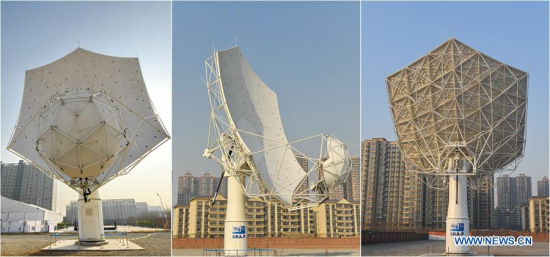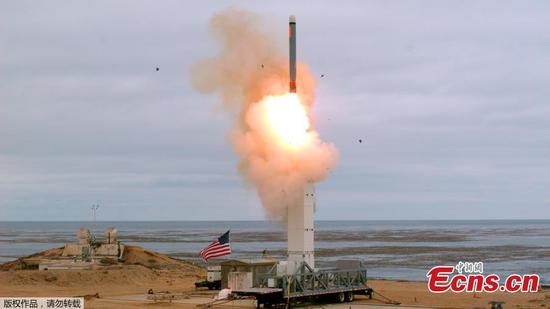
Combined photo taken on Feb. 6, 2018 shows the frontage (L), sideview (C) and the backside of the prototype dish for Square Kilometer Array (SKA) radio telescope. (Xinhua/Mu Yu)
Construction of the Square Kilometer Array (SKA), the world's largest astronomical device, is expected to start next year, and China, one of the founding members, is preparing to build a regional data center and developing its reflector antennas.
SKA will be the largest and most advanced radio telescope ever. It will combine signals received via thousands of small antennas spreading over 3,000 km to simulate a single giant radio telescope with a total collecting area of approximately one square kilometer and capable of extremely high sensitivity and angular resolution.
Owing to the extremely high sensitivity, a wide field of view, ultra-fast survey speed and super-high resolution, SKA will generate a vast amount of observational data, said An Tao, head of the SKA group of the Shanghai Astronomical Observatory (SHAO) of the Chinese Academy of Sciences (CAS).
The transportation, storage, reading, writing, computing, management and archiving and release of the SKA data will pose big challenges to the technologies in the field of information and computing, An said.
China's SKA science team will work with the information, communication and computer industry to tackle the challenges of the SKA big data, which will bring major scientific discoveries and help promote China's economy, said An.
With financial support from the Ministry of Science and Technology and the CAS, SHAO recently led the construction and integration test of the prototype of the China SKA data center.
The SHAO team had completed a large-scale integration test of the SKA core software on the Tianhe-2 supercomputer platform in 2016.


















































